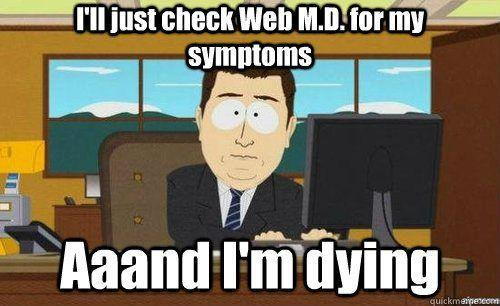What To Expect When You Get Your Wisdom Teeth Removed
posted: Jun. 25, 2014.
 In a previous blog post we covered the reasons you might need your wisdom teeth removed, and what the consequences of keeping them in are. That being said, a lot of you are probably going to be needing to have yours removed sometime this summer or, if not this summer, within the next couple of years. At the very least, you want them gone before you turn 25.
In a previous blog post we covered the reasons you might need your wisdom teeth removed, and what the consequences of keeping them in are. That being said, a lot of you are probably going to be needing to have yours removed sometime this summer or, if not this summer, within the next couple of years. At the very least, you want them gone before you turn 25.
Many individuals come to us very nervous about the whole procedure, but we cannot stress this enough: there is no reason to be nervous. However, we know that telling you not to be nervous is not going to change anything, so we thought it might help you prepare a bit better if you knew what to expect during and after the procedure…
During the Procedure:
You will be anesthetized.Your doctor or oral surgeon will likely give you three choices when it comes to anesthetics:
1. Local anesthesia, which is injected near the site of each extraction so that the site is numbed for the procedure. With local anesthesia, you’re awake throughout the whole procedure, but you don’t feel any pain whatsoever.
2. Sedation anesthesia, which is given to you through an intravenous line in your arm. This type of anesthesia suppresses your consciousness during the process, but you remain awake. Sedation anesthesia is also used in conjunction with local anesthesia.
3. General, which is administered through a mask over your nose. General anesthesia is only used in special circumstances because it makes you lose consciousness entirely. Throughout a procedure in which the patient is on general anesthetics, the entire surgical team keeps a close eye on their breathing, temperature, fluids and blood pressure.
After the Procedure:
We’re guessing that it’s the healing process that’s of more concern to you than what’s going on in office, as these are the stories you hear about the most from your friends and classmates. You already know that you’ll be limited to what you eat and drink, but to get a better idea of what is and what is not allowed, check out this list:
Strenuous activity.Avoid any physically trying activities after your surgery—especially if it puts you at risk for dislodging your stitches. We recommend to just plan on resting for the rest of the day. However, after that initial rest period you can comfortably resume your normal, everyday routine.
Drink a lot of water. Avoid alcoholic, caffeinated, hot or carbonated beverages. Do not drink with a straw for a least a week.
Eat soft foods for the first 24 hours. This means lots of ice-cream, apple sauce and yogurt. After the first 24 hours, you can gradually move on to semi-soft foods, but only do so as you can tolerate them. Don’t eat anything hot, sticky, chewy or hard for a week.
Take your prescribed medicationto manage the pain.
Bleeding is perfectly normal.If you’re bleeding, don’t freak out – just place the gauze given to you by your oral surgeon or dentist over the area to soak up the blood.
Expect your cheeks to be swollen and bruisedfor the first couple of days.
Do not smoke for at least 24 hours after surgery, a week if you can help it.Tobacco products can delay the healing process or even lead to increased complications.
If you follow the above advice – and any other advice given you in office – you should be back to enjoying your summer the right way – in a carefree, pain-free and worry-free manner!
To see how we can best help you get those teeth out and on with your life, visit http://www.lakeshorefamilydentist.com/library/82/Extractions.html